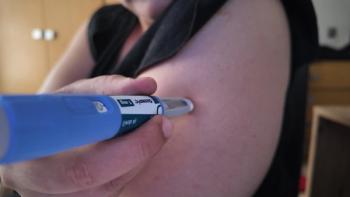
Cancer Center Seeks to Improve Patient Experience, Satisfaction Through Communication Education With Staff
A poster presentation from the Oncology Nursing Society’s 46th Annual Congress describes a single-center clinician education program aimed at improving patient satisfaction.
A single-center program for enhancing patient-provider relationships was able to improve staff member’s understanding of adult education, and in turn, positively effect patient satisfaction scores over time, according to data presented in a poster at the Oncology Nursing Society’s 46th Annual Congress.
This program, developed for the Trinitas Comprehensive Cancer Center in Elizabeth, New Jersey, set out to educate nurses, medical assistants, receptionists, and secretarial staff about patient interactions and to assess their needs. The program will continue to be evaluated through attendance to the program and pre- and post-test intervention assessment; program effectiveness valuation will be conducted by patient-satisfaction surveys.
“In our post program [assessment], our staff showed a better understanding of what adult education is all about and how adults view and learn new knowledge,” Aida Brito, MSN, RN, OCN, lead study author, said in her presentation of the data.
The investigators set out to improve the patients experience based on existing data that indicate health care quality and patient satisfaction go hand in hand. The Ask Me 3 tool and the Oral Exchange Rating Tool, Part 3 were used to educate staff about patient interactions. Pre-program learning-needs assessments and tests were used to determine individual perceptions of the role they play in a patient-provider interaction. All staff then attended the program, and a post-test was given to assess understanding of the content.
Staff members included registered nurses, medical assistants, concierges, patient guides, and medical secretaries. A needs assessment showed that clinicians were interested in learning more about quality of life and critical lab values, symptom management and assessment, and ethical issues.
Themes emerging from the Ask Me 3 pre- and post-tests were education, listening, questioning, understanding, and advocacy. The oral exchange rating summary average scores improved from the pre-program assessment at 29 to 58.4 post-program. Brito pointed out that fewer participants were assessed in the post-program (22 vs 16) due to resignations and medical leave.
Patient satisfaction scores improved from the second quarter (Q2) of 2020 through the first quarter (Q1) of 2021 in areas of emotional support and respect for patient preferences. When asked the question: “How often did you have confidence and trust in the cancer treatment staff treating you?” patient satisfaction scores improved from 76.8% in Q2 2020 to 92.6% in Q1 2021. To the question: “How often did the cancer treatment staff treat you with courtesy and respect” scores improved from 89.3% in Q2 2020 to 93.5% in Q4 2020 but were at 89.3% again in Q1 2021. Scores to: “How often did you have enough input or say in your care at this facility?” scores went from 60.4% in Q2 2020 to 74.1% in Q1 2021.
“Once our patient-provider trusting relationship improves this will in turn enhance health care quality thus improving patient experience and satisfaction,” Brito said. “It is our hope that through proper staff education and the use of the Ask Me 3 communication tool, our cancer patient population will feel confident and supported throughout their cancer experience.”
Reference
Brito A, Fryar J, Blecher C. Cultivating a patient-provider relationship of trust while enhancing/improving patient experience and satisfaction. Presented at: Oncology Nursing Society 46th Annual Congress. April 20, 22, 27 & 29, 2021. Virtual.
Newsletter
Knowledge is power. Don’t miss the most recent breakthroughs in cancer care.


































